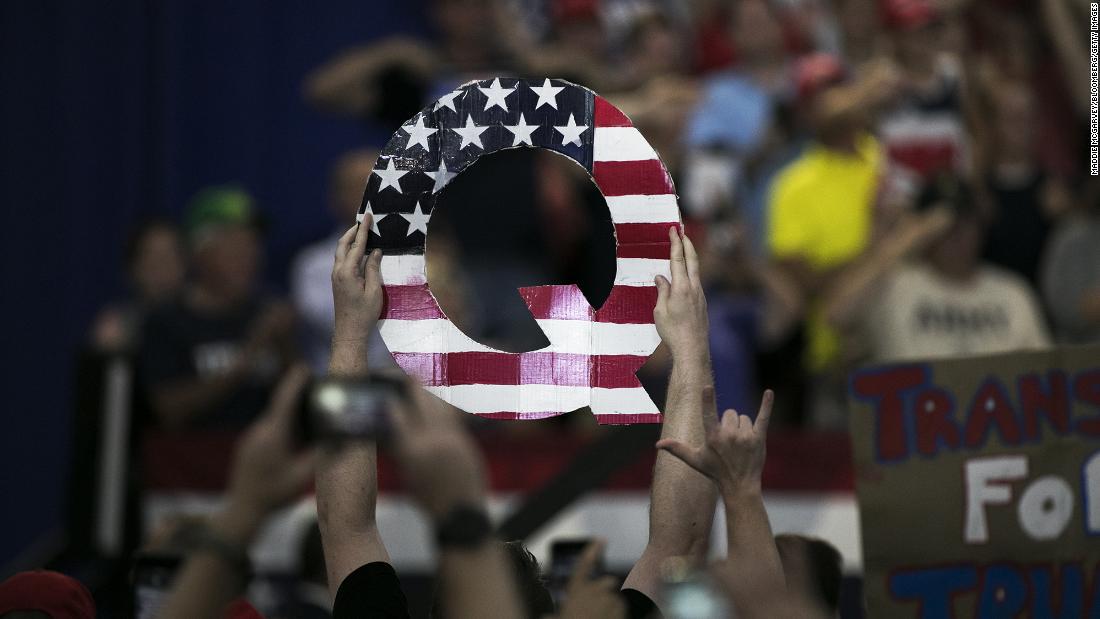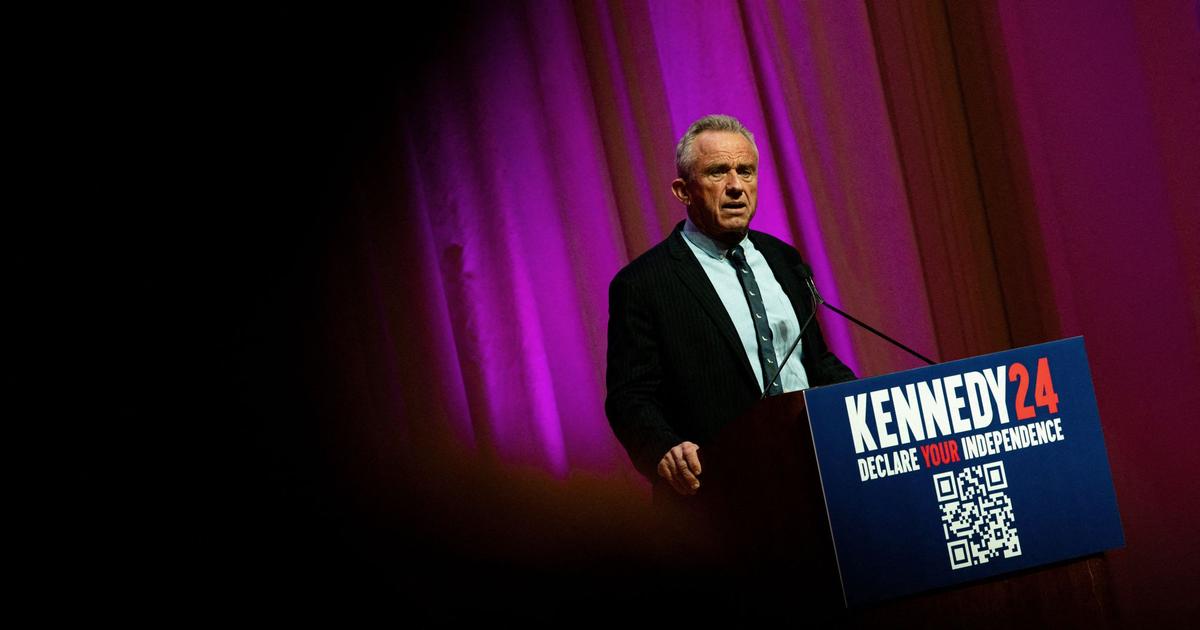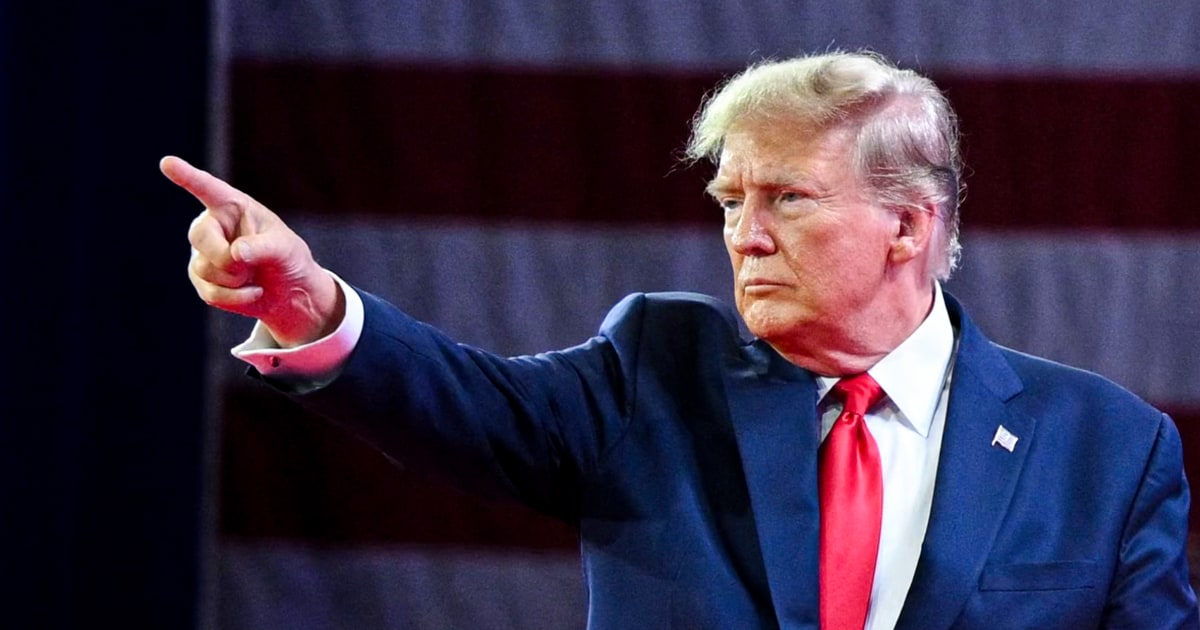Congressional candidate for conspiracy movement receives support from Trump 1:36
(CNN Business) - QAnon is a virtual cult that celebrates President Trump and portrays Democratic politicians and other elites as evil child molesters. The cult aspects are totally delusional. Last year, an FBI office warned that Q's supporters are a national terrorism threat.
Despite all that, or maybe because of all that, this dangerous nonsense seems to be spreading. She's appearing in congressional races and in national news coverage.
In recent weeks, many observers of the online information ecosystem have written, with growing concern, about the presence of QAnon. Reporters like Kevin Roose of The New York Times and Ben Collins of NBC have said that the conspiracy theory has a much wider circulation than educated society wants to admit.
On Thursday, Deepa Seetharaman of The Wall Street Journal wrote that Q-aligned groups have "exploded in popularity" on Facebook and Instagram "since the start of the coronavirus pandemic." Apparently some of the spread is simply attributable to boredom.
- LEE: Born into the dark side of the Internet, QAnon now infiltrates American life and politics
Much of the conversation about the conspiracy happens in the shadows of social media, in private groups. Earlier this week, NBC's Ari Sen and Brandy Zadrozny reported that "an internal Facebook investigation has uncovered thousands of groups and pages, with millions of members and followers, supporting QAnon's conspiracy theory." The fountain? Facebook internal documents. The company is considering taking action against its QAnon community. Twitter recently made similar moves.
Twitter removes 7,000 accounts linked to QAnon 1:27Is there a QAnon bench of the Republican Party?
There is considerable debate in media circles about how to cover this phenomenon. On Thursday, Roose responded to some commenters who criticized him for giving the cult a platform by saying, "Folks, I'm afraid that ship already sailed, bought a laptop, went to 8kun, posted an article on a Facebook group of 200,000 members, washed it on the cable news and submitted the papers to run for Congress.
Numerous Republican Congressional candidates have "embraced" QAnon, as CNN's Veronica Stracqualursi reported earlier this week.
At the top of the list is Marjorie Taylor Greene, who is almost certain to win the race in Georgia to reach the House of Representatives this fall. Trump praised Greene for winning her primary. As Stracqualursi wrote, candidates like Greene are "supporting and promoting QAnon's theories and phrases while seeking political office in a majority party."
For that reason, Roose's most recent column for The Times wondered if QAnon is the new Tea Party. There he said that "there are more parallels than one would think, especially when it comes to how the political powers of his time reacted to the rise of each group."
"A system of radicalization"
On Twitter Thursday morning, disinformation researcher Molly McKew argued that the television news "is not doing a good job of covering this corrosive conspiracy or explaining it. You can't just call it crazy. That does not explain why it is cognitive cancer.
So I asked him to broaden his vision. This is what he wrote to me: “QAnon offers its followers an addictive alternate reality that requires their participation and, through this participation, draws them into the elaborate architecture of the conspiracy. Exploit the feeling that something is broken in our society. But instead of concentrating on understanding these social fractures and healing them, QAnon concentrates on the pursuit of enemies and villains described in such extreme terms that any action - whether by his supporters or by identified champions like President Trump - becomes justifiable. On the basis of culture and value system, Q's followers have justified violent attacks.
- READ: OPINION | In the Republican Party, inmates run the asylum
McKew said that “the power of the QAnon phenomenon is that it is widespread but invisible unless you are a believer or seek it; He could be sitting next to you and you have no idea unless you are an adept. Regular conservatives dismiss it as nothing, and ordinary people generally have no idea what it is. And yet a significant percentage of Americans, at a rate that appears to be accelerating with the coronavirus, believe that at least some part of Q is real. These beliefs are driving the organization of armed movements and attacks, hindering the response to the coronavirus, interacting with us in so many ways that we do not want to believe. It is a dangerous and completely immersive alternate reality that is inspiring its followers to plan national terrorist attacks. In other words, it is a system of radicalization. QAnon has received enough support, amplification and winks from far-right Republicans - the President and his sons, Michael Flynn, the Liberty Caucus - that dozens of candidates are using it to reach potential voters.
It is more than a "conspiracy"
McKew argued to me that when Q is "simply labeled 'a conspiracy' - which is generally correct in categorizing the quality of its content - this in effect diminishes the scope and scale of the danger." He said that “it is important to talk about what an extremist ideology linked to violent attacks is like. It is important to speak not only of the seemingly cartoonish beliefs about cannibalism and the fight against super-pedophiles, but to explain that it glorifies the military and militant actors as a means of recruiting believers; which is also intertwined with incredibly extreme interpretations of Christian beliefs, so much so that some Christian preachers have issued warnings about QAnon. 'Conspiracy' conjures up images of Alex Jones-like hysteria alongside the hawking sale of vitamin supplements and doomsday equipment. 'Extremist ideology' and 'radicalized followers' are more accurate terms to express the danger of QAnon. No, we do not want to inflate its importance. But when you have a bench in Congress, potentially, the ship will have already set sail.
Recommended reading
For an introduction on QAnon, read Paul P. Murphy's article for CNN earlier this summer. There he explained that “QAnon started out as a single conspiracy theory. But his followers now act more like a virtual cult, greatly worshiping and believing whatever misinformation the conspiratorial community produces.
There are narrative components to this virtual cult, as Adrienne LaFrance explained in depth in this article for The Atlantic .
"QAnon is emblematic of modern America's susceptibility to conspiracy theories and its enthusiasm for them," he wrote. But it's also already so much more than a loose collection of conspiratorial-minded chat room dwellers. It is a movement united in the massive rejection of reason, objectivity and other values of the Enlightenment. And we are probably closer to the beginning of her story than to the end. The group takes advantage of paranoia to create fervent hope and a deep sense of belonging. The way he brings to life an old concern about the end of time is also radically new. To look at QAnon is to see not only a conspiracy theory, but the birth of a new religion.
- READ: How to combat misinformation and conspiracy theories from friends and family
LaFrance said on CNN's "Anderson Cooper 360" earlier this week that "facts don't matter to these conspiracy theorists."
"It's one of those most dazzling aspects of the QAnon universe," he said, explaining, "You can show them evidence, you can show how the predictions have gone wrong and they don't seem to care."
Further reading
- Collins published a new story for NBC on Friday titled "How QAnon took the pandemic to new heights and fueled the viral anti-masking phenomenon" (NBC).
- Max Boot's last column is titled "The Republicans Are Becoming The QAnon Party." He says that "the Democrats are in control of the extreme left, while the Republicans are being controlled by the extreme right" ( Washington Post ).
- Rich Lowry says that the spread of the Q theory "shows that the Republican Party of the Trump era has weakened the antibodies against insanity" (Revista Politico ).
- Sam Thielman says that QAnon is "what happens when the news turns to religion." His article argues that "the American information economy is broken" ( Columbia Journalism Review ).
- Earlier this summer, Susan Benkelman wrote that journalists should "be aware of the manipulative tactics of conspiracy theorists and look for ways to cover issues without amplifying their messages" (American Press Institute).
- Of course, Sean Hannity needs to read those articles. When asked about Q in this interview with the Atlanta Journal Constitution , he said: I have no idea what it is about. One person tried to explain it to me. What is it about? Who?" (AJC).
Republican Party QAnon Conspiracy Theories









